

The Tanzanian education system is structured into three main levels: Basic, Secondary, and Tertiary education. Each level ensures students receive a comprehensive education, preparing them for various academic and professional paths.
Pre-primary Education: This stage consists of two years and serves as an introduction to formal education for children aged 5-6. The curriculum focuses on basic literacy, numeracy, and social skills.
Primary Education: Spanning seven years, primary education starts at Standard 1 and goes up to Standard 7. Instruction is primarily in Kiswahili, with English introduced as a subject from Standard 3. Despite the policy of free primary education, costs for uniforms, supplies, and school maintenance remain barriers for many families. National exams are held at Standard 4 and Standard 7, with the latter determining the placement for secondary education. For example, a student completing Standard 7 with high marks may secure a spot in a prestigious secondary school, while lower marks might lead to placement in a local day school.
Non-Formal Adult Education: This provides opportunities for adults to continue their education and attain literacy and other essential skills, catering to those who missed formal schooling.
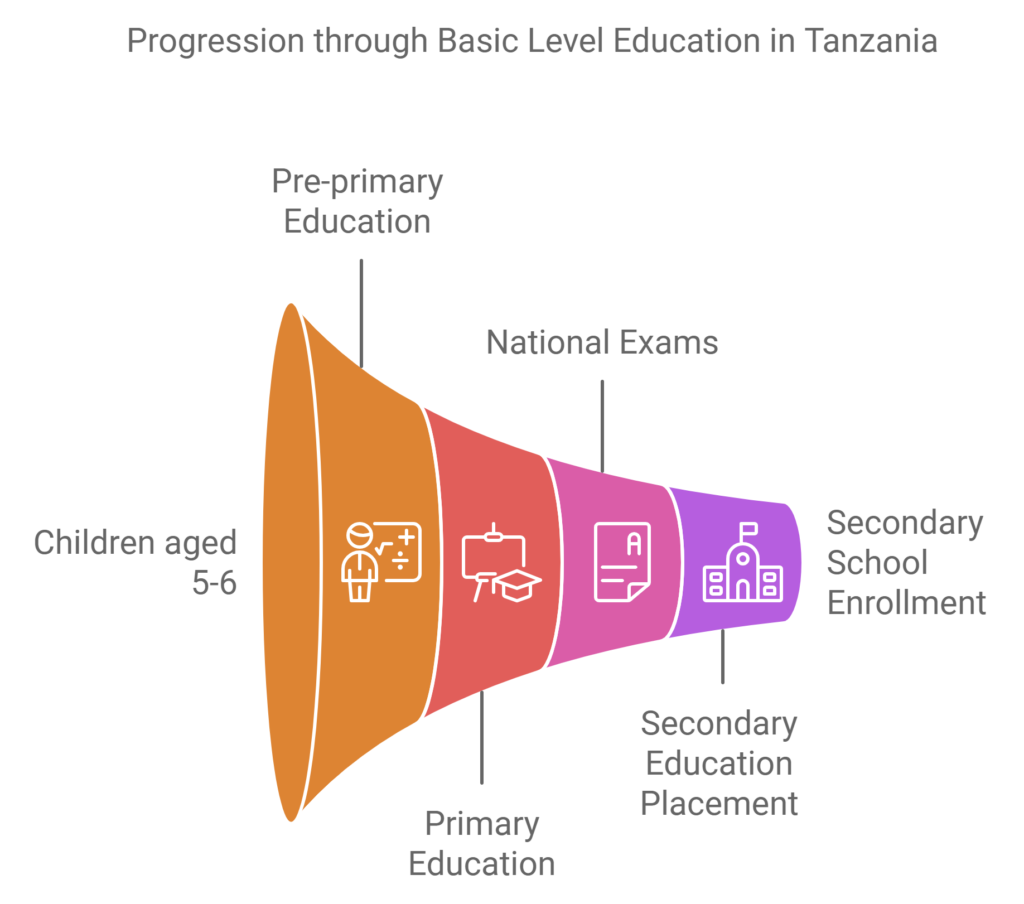
Secondary education is divided into two stages:
Curriculum: Students start secondary education at Form 1 and continue through to Form 4, typically from ages 13 to 16. The medium of instruction switches to English, which can be challenging for students who are not proficient in the language. This stage includes a broad range of subjects, such as Mathematics, Science, Kiswahili, English, History, and Geography.
Streams: In Form 3, students must choose a stream based on their interests and academic strengths.
The streams typically include:
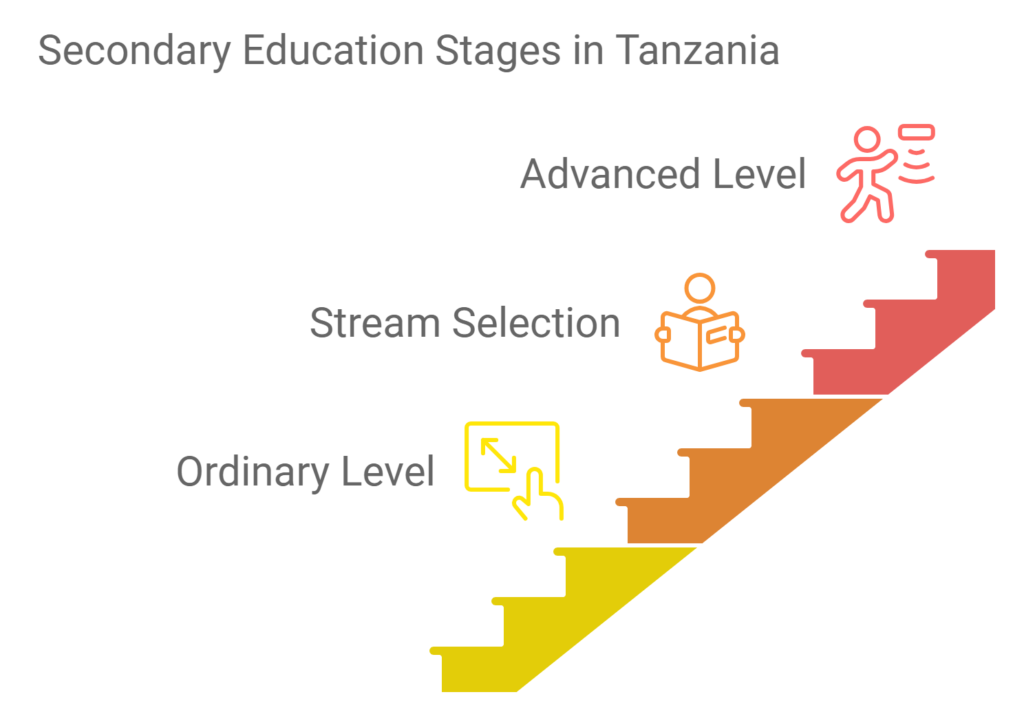
The Certificate of Secondary Education Examination (CSEE) is taken at the end of Form 4. The results of this exam determine whether students can advance to Advanced Secondary School or pursue vocational training. For example, a student with high marks in the CSEE might move on to Form 5 at a top-tier school, while those with lower marks might explore vocational training options.

Curriculum: After passing the CSEE, students proceed to Advanced Secondary School, which includes Form 5 and Form 6, typically from ages 17 to 18. The curriculum here is more specialized, focusing on three major subjects and additional supporting subjects.
Major Subjects: Students choose three major subjects in their selected stream.
For example:
Supporting Subjects: In addition to their major subjects, students take supporting subjects such as General Studies and, for science students, Basic Applied Mathematics.
The Advanced Certificate of Secondary Education Examination (ACSEE) is taken at the end of Form 6. Success in these exams determines the courses students can pursue at the university level. For example, a student with top grades in science subjects might gain admission to a competitive medical program.
Tertiary education includes universities, teacher training colleges, and other higher education institutions. Programs typically last three or more years. After the ACSEE results, students get to choose several courses they would like to pursue and also universities they would like to attend. They provide several options, and the Tanzania Commission for Universities (TCU) makes the placements based on performance and other factors.
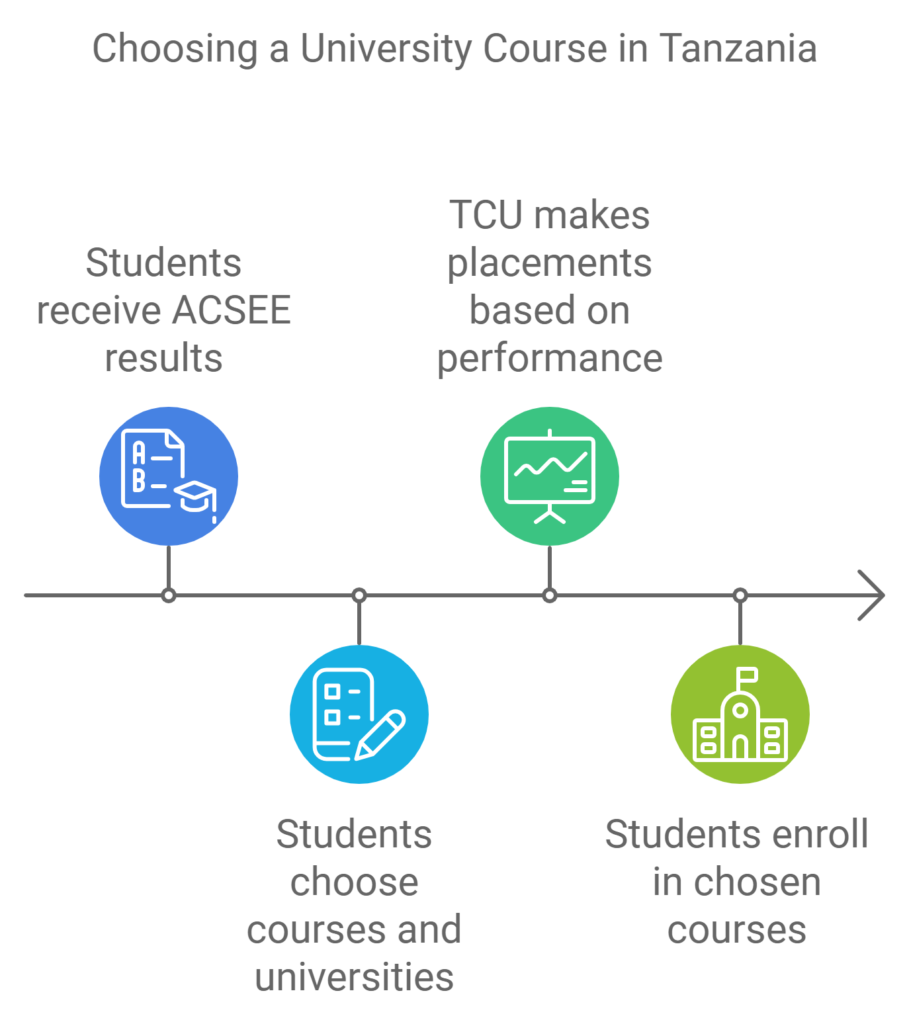
The HESLB plays a crucial role in financing students’ education at the tertiary level. Here’s how it works:
Application: After receiving their ACSEE results, students apply for loans from HESLB. The application process involves submitting academic records, family financial status, and other relevant information.
Selection and Allocation: Based on the provided information and their performance in the ACSEE, HESLB evaluates and allocates loans to eligible students. Priority is given to students from low-income families and those pursuing courses in high-demand fields.
Coverage: The loans cover various costs, including tuition fees, accommodation, books, and a stipend for daily expenses. For instance, a student studying engineering at a university might receive a loan that covers their full tuition and provides additional funds for living expenses.
Repayment: After graduation, students are required to repay the loan once they secure employment. The repayment terms are designed to be manageable, with a portion of the graduate’s salary deducted monthly until the loan is fully repaid.
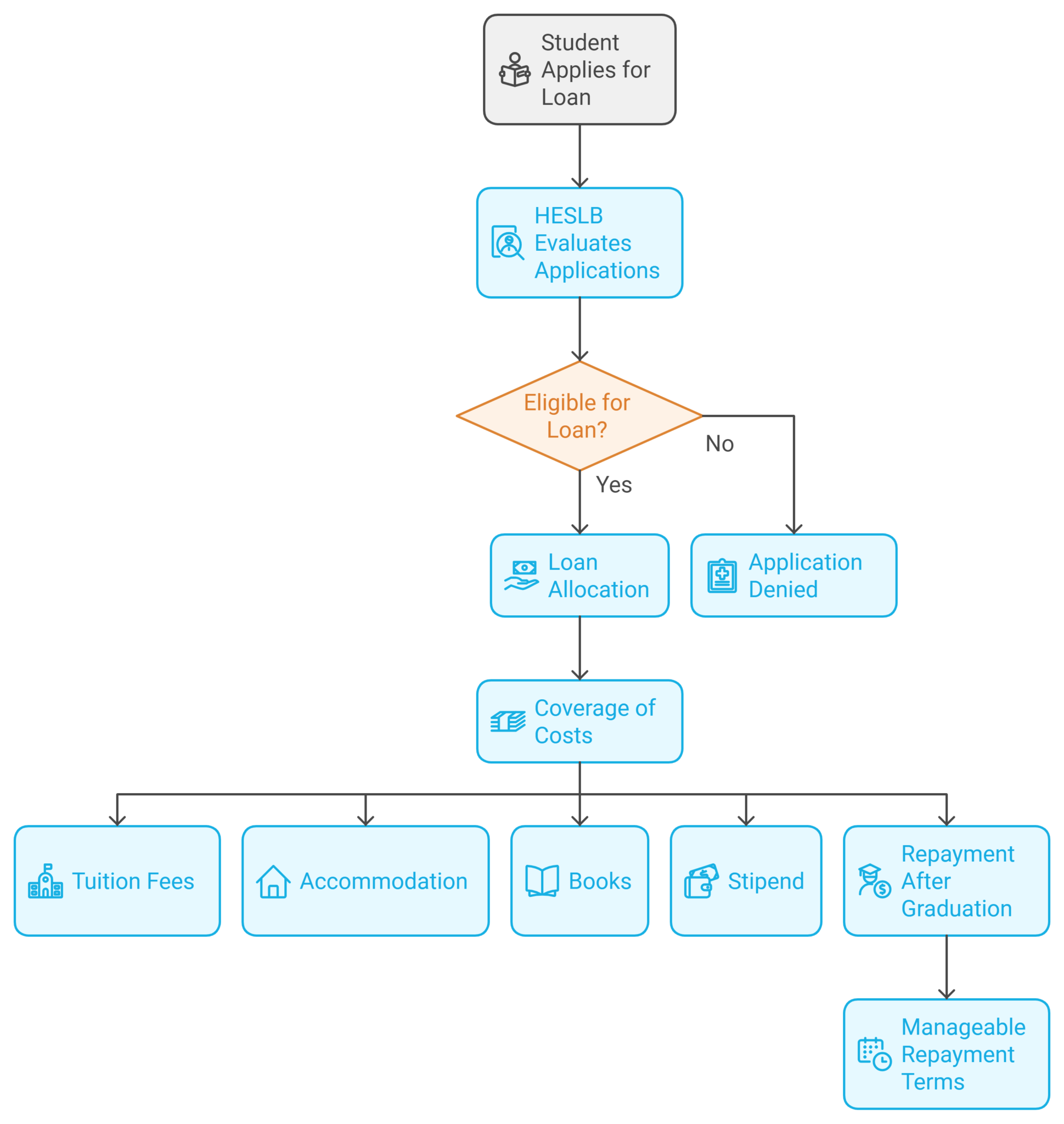
The National Examinations Council of Tanzania (NECTA) oversees various exams at different educational stages:
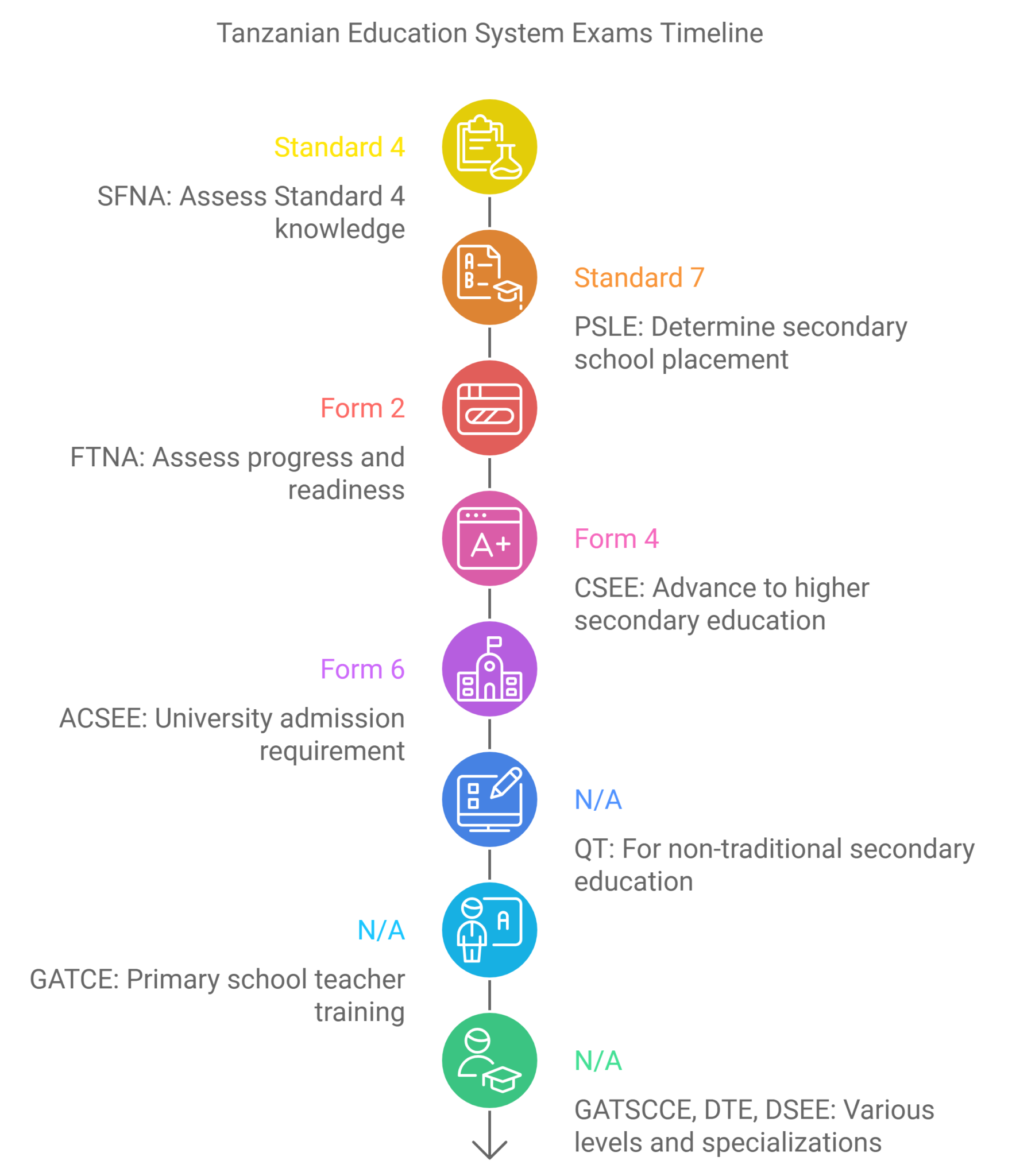
Examinations are scheduled throughout the year:
This structured examination schedule ensures that students at all levels have clear milestones and assessments to guide their academic and professional progression. The NECTA website provides detailed information and resources for each examination type and the scheduling specifics (NECTA).
At Shule Moja, we are dedicated to providing accurate and up-to-date information on educational institutions across Tanzania and East Africa. We strive to ensure that parents and students can make informed decisions with confidence. Our platform is built on trust, reliability, and a commitment to enhancing the educational journey for all users. If you have any questions or need further assistance, please Contact us.
Shule Moja works with recognized and accredited institutions to bring you detailed school listings, performance reviews, and essential insights to help you navigate your future.
View Terms & Conditions | Privacy Policy
For inquiries or support regarding school listings or our services, feel free to reach out. We’re here to help you make the best educational choice.

